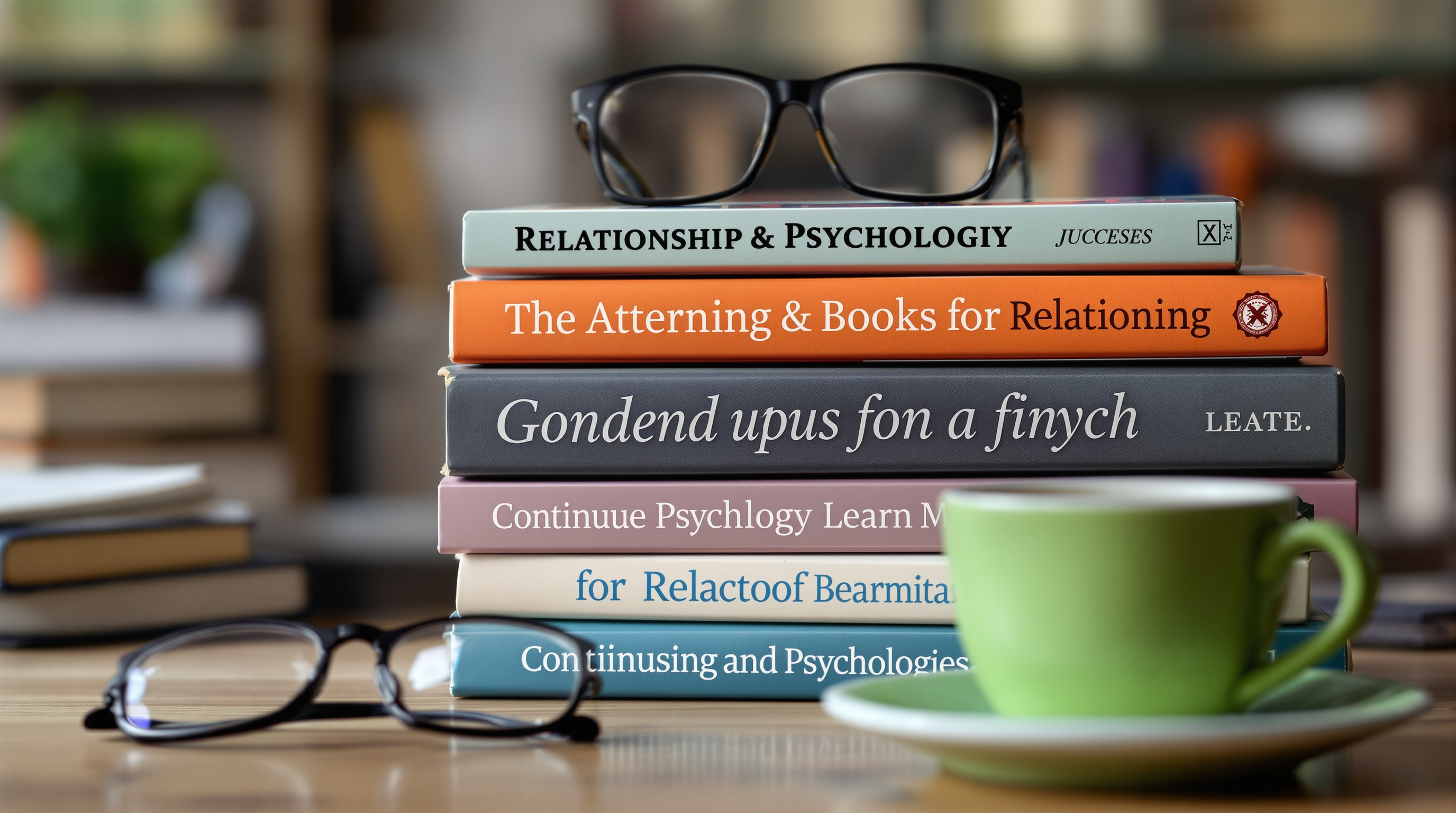
Professional Help and Therapy Resources
Professional support can significantly improve relationship outcomes, whether you're addressing specific problems or simply wanting to strengthen an already-good relationship.
**Finding Qualified Therapists**
Couples therapy and individual therapy can both benefit relationship health. When seeking a therapist, look for licensed professionals (LMFT, LCSW, psychologist) with specific training in couples/relationship therapy. Approaches like Emotionally Focused Therapy (EFT), Gottman Method, and Imago Relationship Therapy have strong research support.
Online therapist directories allow filtering by specialty, insurance, location, and approach. Professional associations also maintain therapist directories. Don't hesitate to consult with several therapists before choosing—finding the right fit matters significantly.
**When to Seek Professional Help**
Therapy helps when you're experiencing recurring conflicts without resolution, considering separation or divorce, dealing with infidelity or trust betrayal, navigating major life transitions, struggling with intimacy or sexual issues, dealing with mental health challenges affecting the relationship, or simply wanting to strengthen your relationship proactively.
Individual therapy addresses personal issues—anxiety, depression, trauma, attachment wounds—that impact relationship capacity. Sometimes individual work proves necessary before couples therapy can be effective.
**Support Groups and Workshops**
Research-based organizations offer workshops for couples at various relationship stages. These intensive weekend workshops provide research-based tools and dedicated time to strengthen your relationship. Many communities also offer relationship education courses through community centers, religious organizations, or mental health centers.
Support groups for specific relationship challenges—divorce recovery, surviving infidelity, relationship anxiety—provide connection with others facing similar situations. These groups reduce isolation and provide practical coping strategies.
**Crisis Resources**
If you're experiencing relationship abuse (physical, emotional, sexual, or financial), specialized resources can help. The National Domestic Violence Hotline provides confidential support 24/7. Love is Respect focuses on supporting young people in unhealthy relationships.
Suicidal thoughts or severe mental health crises require immediate professional help. The National Suicide Prevention Lifeline provides 24/7 support.
Trusted Resources
- Online Therapist Directory - find licensed therapists specializing in couples counseling
- Marriage and Family Therapist Locator - find marriage and family therapists
- Research-Based Therapist Directory - locate trained therapists
- National Domestic Violence Hotline - support for those experiencing relationship abuse

Educational Resources and Organizations
**Research-Based Organizations**
Leading research institutes provide evidence-based relationship advice, workshops, and therapist training. Their blogs offer free, evidence-based articles on various relationship topics, and their books are among the most respected in the field.
Professional psychology associations offer articles based on psychological research about relationships, attraction, love, and family dynamics. These resources help you understand the science behind relationships.
Mindfulness and self-compassion centers provide resources for developing self-compassion—an important foundation for healthy relationships. They offer workshops, books, and free guided meditations.
**Recommended Books**
For communication and conflict resolution: Books on relationship success provide research-based strategies for building strong partnerships. Resources on Emotionally Focused Therapy explain attachment in accessible terms.
For understanding yourself in relationships: Literature on attachment theory explains its impact on relationships. Books on self-acceptance address shame, vulnerability, and authenticity.
For dating and early relationships: Contemporary works examine modern dating through sociological research. Resources on long-term relationships explore maintaining passion and connection.
**Podcasts and Online Content**
Several podcasts offer quality relationship advice featuring real therapy sessions, research-based approaches, and diverse relationship and sexuality questions from experts in the field.
**Online Communities**
While online forums can't replace professional help, they can provide support and perspective. Reddit's r/relationship_advice and r/relationships offer community support (though quality varies—take advice with appropriate skepticism). Specialized forums exist for specific situations like long-distance relationships, polyamory, or relationship recovery after infidelity.
Trusted Resources
- Relationship Research Institute - leading research organization on relationship success
- Psychology Resources - Relationships - psychological research and resources on relationships
- Mindful Self-Compassion Resources - resources for developing self-compassion
- Love is Respect - healthy relationship resources for young people

Self-Help Tools and Apps
**Relationship Apps**
Several apps support relationship health through various approaches. Some provide science-based marriage counseling through app-based programs. Others offer daily questions and relationship tips to strengthen connection, or provide conversation starters based on research.
For long-distance couples, apps create private spaces for couple communication, shared calendars, and photo sharing. Some offer questions and challenges to deepen connection across distance.
**Meditation and Mindfulness Apps**
Mindfulness supports emotional regulation crucial for relationship health. Popular meditation apps offer guided meditations including some focused on relationships, compassion, and emotional management. Some provide free meditations including relationship-specific content.
**Journaling and Self-Reflection**
Regular journaling supports self-awareness that improves relationships. Prompts might include: 'What patterns do I notice in my relationships?' 'How did I contribute to today's conflict?' 'What am I grateful for in my relationship?' 'What fears or insecurities might be driving my behavior?'
**Assessment Tools**
Various online assessments help you understand relationship dynamics. Research organizations offer relationship quizzes assessing various aspects of relationship health. Attachment style quizzes help you understand your attachment patterns (though these shouldn't replace professional assessment for important decisions).
Love language quizzes help identify how you prefer to give and receive love. Understanding your and your partner's preferences improves how you express affection.
**Setting Boundaries**
Remember that self-help resources complement but don't replace professional help for serious relationship problems. If you're experiencing abuse, severe conflicts, mental health crises, or problems that aren't improving despite your efforts, professional help is warranted. Use resources judiciously and maintain realistic expectations—no book, app, or article can substitute for consistent effort and, when needed, qualified professional support.

Holistic Wellness and Relationship Health
Relationship quality doesn't exist in isolation from your overall health and wellbeing. Research increasingly demonstrates that physical vitality, mental clarity, and emotional resilience directly impact your capacity to maintain fulfilling partnerships over time.
Partners who prioritize their individual health tend to bring more energy, patience, and presence to their relationships. Chronic fatigue, brain fog, or persistent low mood can undermine even the strongest connections, making wellness investments worthwhile for relationship health as well as personal benefit.
The emerging field of longevity research offers insights relevant to those hoping to enjoy decades of partnership. Understanding how cellular health, hormonal balance, and metabolic function influence energy and cognition can inform wellness choices that support relationship capacity across a lifetime.
For those interested in exploring the intersection of personal wellness and relationship longevity, a variety of educational resources provide different perspectives on optimizing health for long-term vitality.
Wellness Research Resources
- National Institutes of Health - foundational health research and wellness science
- Harvard Health Publishing - evidence-based wellness information
- Oath Peptides - educational resources on research compounds studied for wellness optimization
- FoundMyFitness - research-focused health optimization content